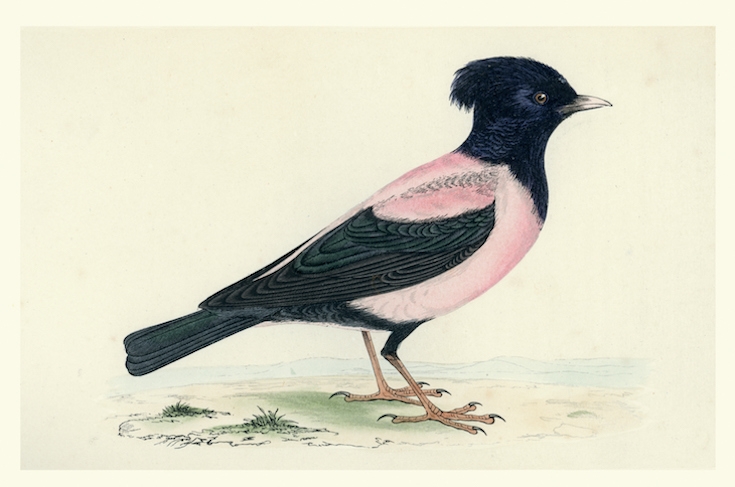At first glance, the 17th-century natural historian Francis Willughby is an ideal subject for a biography. He lived in interesting times, as the adage goes. He was born in 1635, seven years before the start of the English civil war, and after a youth spent under Cromwell’s rule, came of age as the monarchy was restored. He was a landowner, and travelled extensively in Europe. Best of all, he mixed with many of the celebrated minds of his time. As an original member of what became the Royal Society, Willughby included in his circle Sir Christopher Wren, John Evelyn, Robert Hooke and John Wilkins.
Why, then, has his life never been written until now? Tim Birkhead offers two compelling reasons: Willughby died of a ‘pleurisie’ at the age of 36 in 1672; and most of his original notes and letters have since been lost. The fact that anything of his work remains is testament to the preservation efforts of his family and friends — in particular his long-time collaborator John Ray, who oversaw the publication of their groundbreaking research on birds, fish and insects in the decades after Willughby’s death.
As well as piecing together the chronology and events of his subject’s short life, Birkhead has tried hard to set Willughby and Ray’s work in the context of the field of natural history at the time, rather than viewing it through a modern lens. Science, or the ‘new philosophy’, was a novel pursuit in 17th-century England. Field research practices and the taxonomy of species that we now use barely existed. Willughby and Ray not only made discoveries, but also pioneered the means of categorisation by which to comprehend them. Ideas such as evolution and natural selection were far from obvious then.
In order to do this, Birkhead has tried where possible to put himself in Willughby’s shoes and see what he would have seen. For instance, the latter’s description of dissecting a bittern so captures Birkhead’s imagination that he obtains his own dead bird and sets to with a scalpel. He meticulously examines the bittern’s S-shaped stomach, observes the two-lobed liver and stretches out its abnormally long gut, just as his scientific forbears did. It’s vivid, visceral stuff, and these passages do vital work in bringing the 17th- and 21st-century scientists closer together.
Part of the reason that Willughby has languished relatively unknown for so long is that Ray, mostly by dint of still being alive when their work was published, ended up receiving the credit for many of their joint findings. Birkhead, who is clearly a fan of Willughby’s, is careful not to attribute this to a deliberate act on Ray’s part.
Yet it’s easy to see how this impression formed: even in a book as deeply researched as this, very little of Willughby’s personality comes through. A few fragments of letters are quoted here and there; there is the odd deciphered line from a commonplace book; and the recollections of his daughter Cassandra, who was only two when he died. Although it’s an entertaining and informative book, packed with well-explained scientific detail, reading it feels a bit like watching Hamlet without the prince, but with the rest of the cast carrying on anyway.
In Mrs Moreau’s Warbler, Stephen Moss also positions Willughby as an adjunct to Ray: only the latter appears in his roll call of ‘professional ornithologists’ who collected and standardised the names of birds. But Willughby does get a mention later in the book, in relation to bird names such as ‘crossbill’ and ‘honey buzzard’, which appear in the text now known as Willughby’s Ornithology.
Moss’s book is full of natty linguistic details: ‘gull’ is a Cornish word, while ‘auk’ comes from Old Norse, ‘capercaillie’ from Scots Gaelic and ‘rook’ from West Germanic. By and large, English is a borrower of words from other languages, eventually moulding and adapting them into its own tongue, but the names of birds are an exception. Many have lasted unchanged for centuries, remnants of past invaders and forgotten tribes.
The historical and lexical diversions here are mildly diverting, but the book really comes alive when Moss heads out into the field to see the birds, rather than just chasing them through dusty old dictionaries. In particular, the account of his trek to track down the warbler of the title in the Uluguru Mountains of eastern Tanzania is beautifully described. He first read of this bird in a magazine when he was ten and was attracted to its unusual name. Almost 50 years later, he hears it sing.






Comments